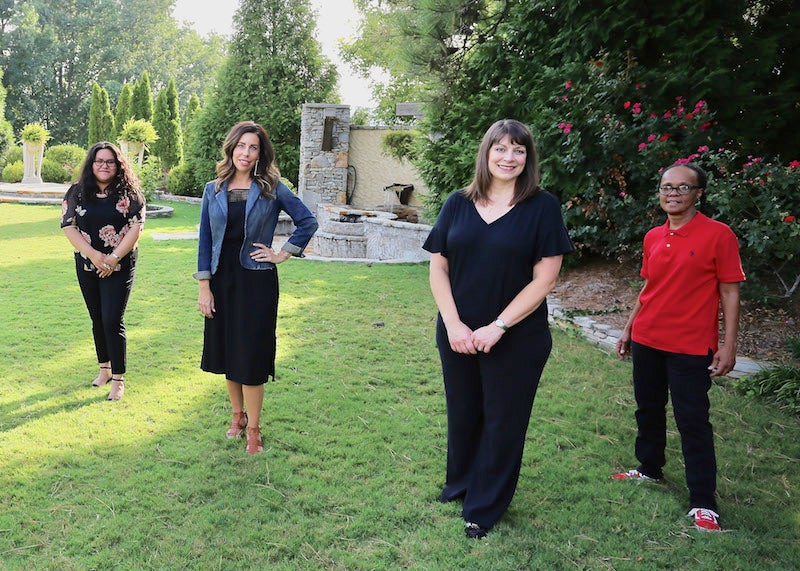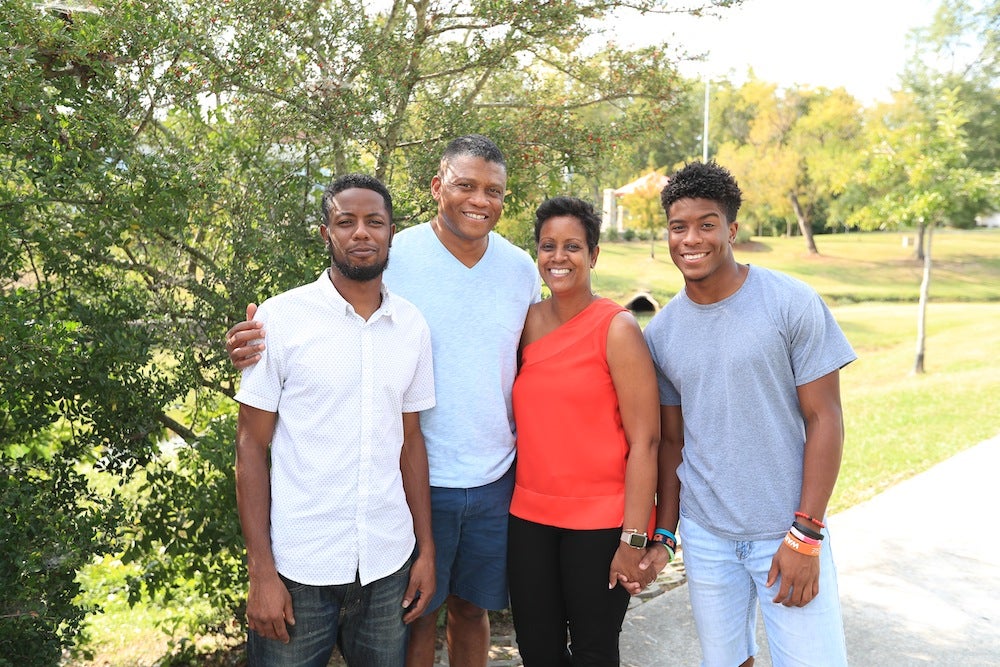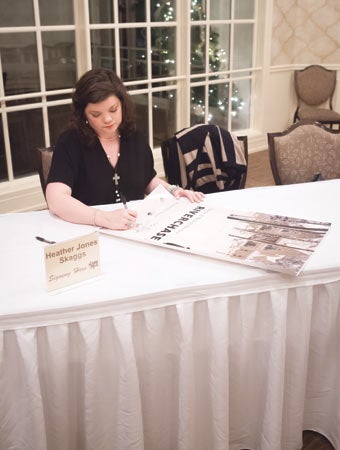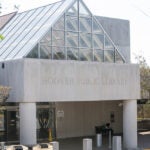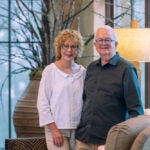Focus on Recovery helps women break free from addiction.
A woman pops the top off of a bottle as she drinks alone, her nightly ritual that’s become more of a dependence than a choice. Another relies on drugs to deal with life’s struggles, unsure if today will be her final overdose.
Sadly, these stories aren’t unique, with addiction affecting people across the state and country. Alabama ranks No. 1 in opioid prescriptions per capita, says Jackie Batson, executive director of Focus on Recovery. In 2016, there were 121 opioid prescriptions for every 100 people in Alabama — meaning 1.2 prescriptions for every person, including children.
“Our community does not have enough beds to handle the mental health needs nor the addiction recovery needs of our state,” Batson says.
While the demand can seem overwhelming, Focus on Recovery is changing lives, one woman at a time. Founded by Lulu Richardson in 2001, Focus offers a long-term recovery setting in Hoover for women to live in after completing a primary treatment for alcohol and substance abuse. It started with two donated apartments that served up to eight women at a time and can now house up to 28 women in their current residential program.
“For years, our mission has been to provide women with a clean and sober living environment that bridges the crucial period between primary treatment and lasting recovery,” Batson says.
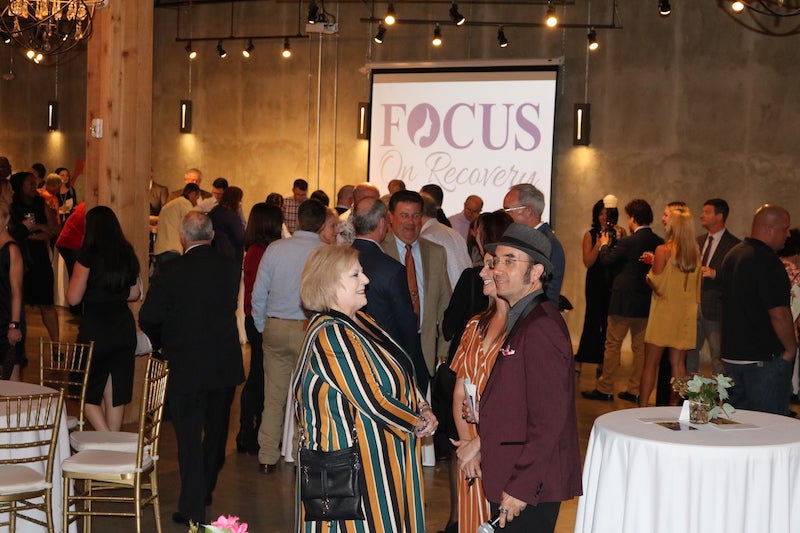
The Focus program provides housing, educational classes, relapse prevention groups, relationship workshops, 12-step recovery groups, life-skill training, family workshops, financial literacy, job readiness skills, art therapy and accountability groups for women ages 19 and older.
The program can facilitate 28 women, and their occupancy fluctuates as women are admitted and/or graduating at different times throughout the year. The minimum stay is six months, but the residents have the option to stay longer on a case-by-case basis.
One woman looking for support for her sobriety was Michelle Pierce. About four years ago, Pierce found herself at gunpoint. She was sexually abused and shot, leaving her feeling broken. “I fell into the bottle and became suicidal,” she says. “My husband was deployed. I would go to work and come home and drink every day.”
Her parents and husband pushed her to get help, and that’s when she decided to go to Bradford. After completing three months in Bradford’s rehab program, Pierce says she knew she wasn’t ready to go back home to her old environment. “I needed to learn how to live life sober,” she says.
Bradford recommended Focus, which is where Pierce found a staff who not only cared about her recovery, but also a group of women who understood her struggle. “The best part about Focus is that it forces you to do the things you don’t want to do but need to do,” Pierce says. That includes going to therapy, meetings, work and talking with other women who have gone through the same experience, she adds.

After six months in the program and another two in their Bridge apartments, Pierce says she knew she was ready to move back home. “I was strong enough, and I had learned so much more,” she says.
Now, Pierce, 29, has a full-time job as a dental assistant, attends regular AA meetings, goes to therapy, volunteers and is active in her church. She also shares her story and experiences to help others who are going through the same struggles she faced.
“For me, a big part of my personal story was finding my relationship with God again,” Pierce says. “I was bitter and angry, but having that time away from family and old friends gave me the time to search and find God.”
Pierce says she knows things would have turned out differently if she didn’t get the help she needed and is thankful for everyone at Focus who played a role in her recovery. “If I hadn’t gotten sober, I don’t think I’d be alive,” Pierce says. “If I hadn’t committed suicide, I would have drunk myself to death or been killed from drinking and driving. I love Focus, and I feel like I owe my life to them.”
Shannon Lathrop, another Focus alum, can relate to Pierce’s thankfulness for Focus, which helped her fight a longtime addiction. She became a drug and alcohol abuser when she was 11 years old, but her issues really came to a head a few years ago when she was going through a custody dispute.
“I had managed it up until that point,” Lathrop, now 29, says. “But about a year ago, I quit my job, I wasn’t working and I was ruining my life. I had overdosed several times in the year before treatment. I didn’t care if I lived or not. The last time I had a big bender, things got bad. I told a good friend to get me to my car and if I woke up the next day, I would go to treatment.”
Like Pierce, she first turned to Bradford and then continued her recovery process at Focus. “I wanted to make sure I was on my feet and build a recovery network in a structured environment,” Lathrop says.
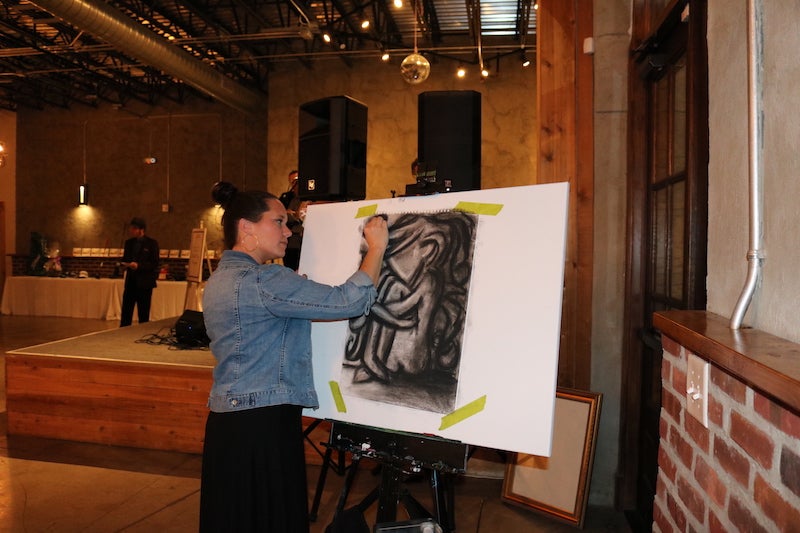
The outpouring of support — for both her addiction and personal life — was one of the things Lathrop especially appreciated.
“The staff really cares about the women,” Lathrop says. “I went through a divorce while I was there, and they were really supportive during that. They offer a lot more than keeping you clean and sober. It’s a really great place for women to go and rebuild their lives.”
During the program, the women call Focus alumni each week for support, and now Lathrop is on that list for current residents to talk to. “There are a lot of strong women who came out of Focus,” she says.
Lathrop currently works at a freight broker company, goes to meetings, attends church, speaks at treatment centers, volunteers and tries to stay involved in her community. “Focus definitely saved my life,” Lathrop says. “Honestly, I’d be dead or really miserable. I was on that path, as many times as I’d overdosed.”
To serve even more women like Pierce and Lathrop in search of recovery from addiction, Focus recently came up with a new program and mission statement: “Informed by faith and proven recovery processes, Focus guides women in early recovery to true and lasting freedom from addiction.”
As part of these changes, they will be developing a more holistic approach, creating more educational opportunities, having a full daily schedule and partnering with more community groups and churches.
“Recovery is possible, but proper support and encouragement is vital,” Batson says. “Many women who once had no hope for a changed lifestyle find it very beneficial to incorporate faith as part of their recovery journey. At Focus on Recovery, we believe you can overcome any addiction with commitment to your faith and proven recovery processes.”
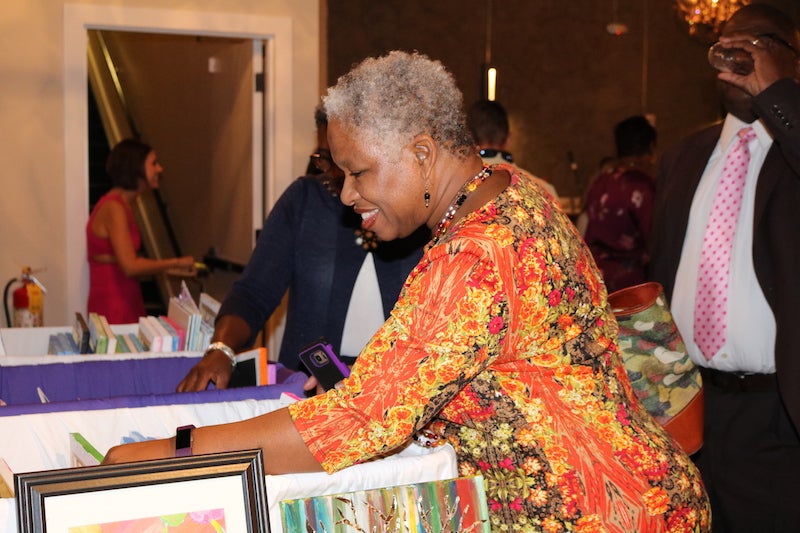
They are also in the early phases of developing programs in other locations, and Batson says there’s growth and opportunity in store for the organization and women it will serve.
Batson says her favorite part about being a part of Focus is getting to know a woman’s story and watching her slowly overcome every obstacle and setback caused by her addiction. That journey doesn’t end once they finish the program.
“We invite our graduates back to share their stories with our current residents, and it’s always a thrill to hear how their lives have been restored, relationships rebuilt and new careers established,” Batson says. “But most of all, they’ve learned to forgive themselves and are grateful for second chances.”
Focus is a nonprofit and hosts a golf tournament each April and a gala in October. It costs Focus on average $6,000 to serve one woman seeking long-term recovery, Batson says, so they rely on donations and sponsorships to continue their efforts.
For more information, visit Focus-on-recovery.org. To learn how groups and businesses can partner with Focus — or have someone from Focus speak to their group — contact Jackie Batson at (205) 822-7300.

